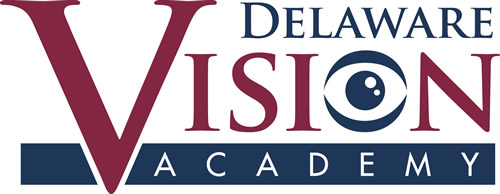Vision Rehabilitation Frequently Asked Questions
Acuity is measured by the ability to read a letter chart from a distance of twenty feet. 20/20 sight refers to normal visual acuity. A visual acuity test, however, does not assess all the visual skills necessary to read and learn.
The focus of your yearly exam is to maintain good eye health and check the need for glasses or contacts. The doctor tests for any deficiencies with eye movement, eye coordination, and other visual skills that can interfere with reading and learning.
No. Your doctor will be informed of the results from the testing and the recommendations made. If treatment is recommended, we will keep your doctor fully apprised of your progress. Your current doctor is still able to take care of your general eye care needs.
Depending on the depth of the problem, the doctor might recommend a “watch and wait” approach, special therapeutic lenses or a more aggressive treatment plan, including vision rehabilitation.
Delaware Vision Academy is a provider for many of the major insurance companies. However, everyone’s policy coverage differs. Our staff is trained to assist you in understanding your benefits.
As with any subject matter, the public must be careful to consider the source. Vision therapy is a well established field within the optometric profession. I would, therefore, recommend that the reader place most credence in information acquired from optometric web sites or from patient or parent advocate sites which look at the subject objectively. Readers need to be aware that some web pages are misrepresenting vision therapy. Can you be more specific? Let’s say you were seeking information on the Web about treatment of a hip problem. If you had a question about physical therapy, you would look to a physical therapist (P.T.). For information on surgery, you would rely on an orthopedist (M.D.). In this particular example, you could get accurate information about either treatment options from both professionals. That’s because orthopedic surgeons and physical therapists have learned to work together in the best interests of the patient. Unfortunately, this is not the case in vision care where optometrists and ophthalmologists don’t always agree on vision therapy. Some ophthalmologists have even taken it upon themselves to post unjustifiably negative information on vision therapy on the Internet. (This information was taken from an interview with Dr. Leonard J. Press, FCOVD, FAAO, author of the textbook Applied Concepts in Vision Therapy, by Rachel Cooper, founder of Optometrists Network.)
Vision problems often can and do interfere with reading and learning. Optometrists do not claim that vision therapy is a direct treatment for learning disabilities, such as LD, dyslexia or ADD. Vision therapy is directed toward resolving visual problems which interfere with educational instruction. The statement on vision therapy and learning disabilities by the American Optometric Association and the American Academy of Optometry makes it clear that a multidisciplinary approach to learning disabilities is recommended, and that vision is but one aspect of the overall picture. Statements to the effect that vision therapy has no place in the treatment of learning disabilities are inaccurate and misleading. Vision therapy can improve visual function so the patient/student is better equipped to benefit from educational instruction. In 1991, Firmon Hardenbergh, M.D., the Chief of Ophthalmology at Harvard University Health Services, had this to say regarding a double-blind scientific study of children with reading disability and convergence difficulty: “The application of orthoptics [included in vision therapy] to all learning/reading disabled or deficient children who manifest convergence insufficiency should be the first line of therapy.” Regarding visual processing and learning disabilities, Corinne Smith, Ph.D., Associate Dean of Education at Syracuse University, noted in her 1997 text on Learning Disabilities, that students with visual perception disabilities have trouble making sense out of what they see. “The problem is not with their eyesight, but with the way their brains process visual information.” For interested parties, there are many references which touch on the subject of visual processing and learning disabilities, see Vision Therapy References. For web sites offering accurate and useful information on this subject, see Vision Therapy Links. (This information was taken from an interview with Dr. Leonard J. Press, FCOVD, FAAO, author of the textbook Applied Concepts in Vision Therapy, by Rachel Cooper, founder of Optometrists Network.)
The aim of vision therapy is to enhance the visual skills— eye-tracking, focusing, convergence, eye-hand coordination, visual processing speed and more!
